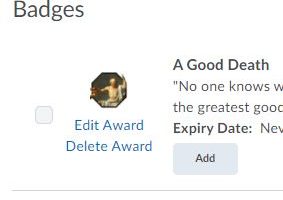What happens when I try to teach a course on the anthropology of anarchism?
Last year I was teaching a course on American Communities when discussion turned to hierarchy and power. For purposes of the class, I had given a very broad definition of community as an association of people with some element of shared identity. We were discussing ways that uneven power relations between individuals become visible, and I used the example of our own university class as an example: I am in the role of instructor, and I am in charge of developing the syllabus, grading procedures, etc.. In the process, I commented offhand that it would be interesting to run a college class more as a learning collective—maybe a course on the anthropology of anarchism, run by consensus. Days later, I was offered an opportunity to teach a course on a subject of my choice…
As I thought more about the idea, several things appealed to me. Anarchism in its many flavors has a long relationship with anthropology. In addition to explicitly anarchist anthropologists like David Graeber, anthropologists have also participated in critiques of the State and first-hand studies of social movements. And, the work of anthropologists like Marcel Mauss is important within anarchist theory. I had participated in the Occupy movement in Memphis and had a long interest in supporting voluntary associations and mutual aid. I was interested in learning more about the history of anarchism, of social movements more broadly, and the consensus process—and this class would be a vehicle for reading and discussing. Pedagogically, I was interested in de-centering myself from the instructor role and encouraging students to take leadership of the class. I also felt that, should the “learning collective” approach fail, it was likely to fail in productive ways.
While I think the course was ultimately successful in terms of content and critical discussion, I almost immediately started to see cracks in collectivist scheme. The University doesn’t operate as a voluntary association of academics; it is an institutionalized bureaucracy composed of people in positions and technologies of communication. On the course proposal form, courses are lectures or labs: there is not an option for “learning collective.” I also had to develop a syllabus in order for the University to approve the course—including course policies and a set of learning objectives defined by me. Before the first class meeting, the plan of a decentered instructor in a student-managed learning collective was on the rails. I countered by building consensus into the syllabus[1] and planning for a nebulous “class project” (what would become a class zine) that would be determined once all voices were in the room. As Leonard Cohen reminds us: “there is a crack in everything. That’s how the light gets in.”
Once the semester started, students asked me to lecture more, at least periodically, to add context to the course readings and discussions. I also ended up facilitating discussions more often than I had hoped, though others took more of a lead on the zine. While I was approaching the class with a goal of collectivism, I had two things working against me: my own comfort with being in the lecturer role and (some) students’ discomfort with a class that was—for most—unlike other past classroom experiences they had known. For my part I found that, while I was willing to bend the student-instructor dynamic, I was nervous about breaking it completely. Just this reflection was worth the price of admission to me; I think this says something important about the reinforcement of mundane power and its contribution to larger social hierarchies. It also points out just how hard it is to embed an anarchistic praxis into a system where a hierarchy is expected from all of the key players.
As others in anthropology have noted, the logic of assembly becomes most evident when it is under stress. Where this class failed, it was productive. I am coming away from this iteration of the course (I can only hope there will be others) with questions: about the interfaces between anarchistic groups and bureaucracies, the necessity of friction in the student-teacher relationship, the usefulness of creating cultural spaces for the temporary restructuring of power relationships. Ultimately, this was a sandbox experiment within the relatively safe (read as: not actually threatening to the State) space of the University. But, I maintain that experiments like this are critical for making our daily interactions seem less matter-of-fact and more constructed—and that perspective is useful for both the practice of anthropology and engagement in our larger world.
[1] The initial course syllabus is available online at https://tedmaclin.com/?page_id=298


